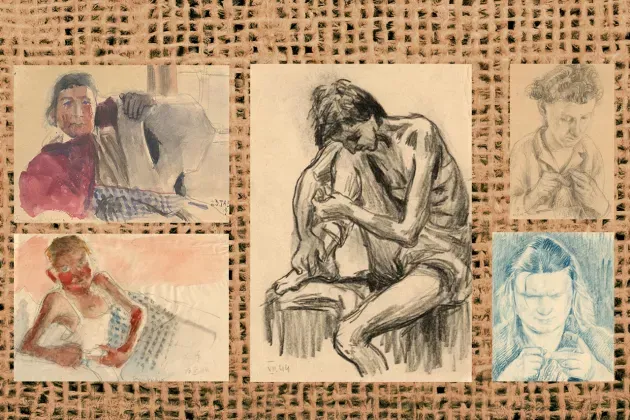Following the end of the war in spring 1945, Folke Bernadotte's White Buses rolled out of a bombed-out Germany. A total of 20,000 people were transferred to Denmark and Sweden. One of them was Genek Granek, a Polish Jew, who grew up in Łódź, just over 100 kilometres from Warsaw.
“In a monotone voice, Genek Granek tells us how he, as a 12-year-old, watched the German trucks pull up to the hospital and how ‘patients were thrown out of the windows onto the flatbed trucks – among them were pregnant women, newborn babies and people with typhus and dysentery,’” says Håkan Håkansson, digitisation coordinator at Lund University Library, who led work to make the archive available digitally.
Genek Granek's voice is one of the 500 stories that make up the Ravensbrück Archive. On 11 April, UNESCO decided to add the Ravensbrück Archive to the Memory of the World Register. The Ravensbrück Archive is thus recognised as an example of cultural heritage of outstanding value to humanity. Other entries on the Memory of the World Register include the original sheet music of Ludwig van Beethoven's 'Symphony No. 9 in D minor' as well as the Gold Lists of the Qing Dynasty Imperial Examinations in China. Preparations for the recognition have taken more than a decade.
“It is a great honour for the Ravensbrück Archive to receive this status and a recognition of the extensive work that has gone into creating, preserving and making the archive accessible. As a Memory of the World library, we now want to take responsibility for continuing to cherish the memory and to take advantage of the opportunity to learn from history that the collection offers,” says Håkan Carlsson, Library Director at Lund University Library.
“It is now almost 80 years since the end of the Second World War and the horrors of the Holocaust becoming known. As survivors become fewer and fewer, documenting their voices becomes more important, not least for a younger generation for whom the Holocaust may seem so distant as to be irrelevant. The voices of the survivors make clear how incredibly fragile a democracy is; how quickly the moral foundations of a society can crumble and make the unthinkable possible,” says Erik Renström, Vice-Chancellor of Lund University.


